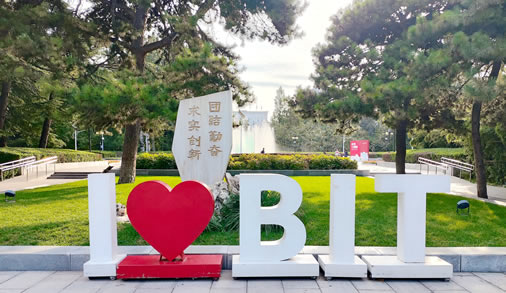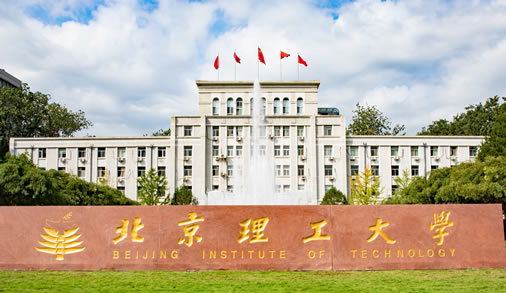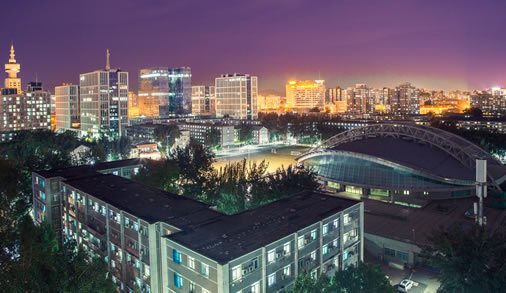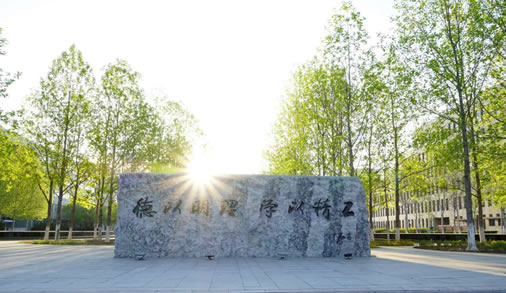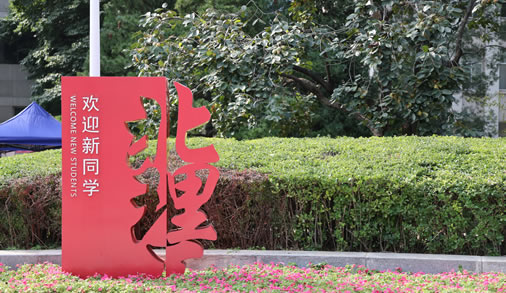

Updated: 2023-10-25
The School of Aerospace Engineering at BIT was established on December 30, 2008. It offers the six undergraduate programs of flight vehicle design and engineering, aerospace transportation and control, flight vehicle propulsion engineering, weapon system and launching engineering, exploration guidance and control, and engineering mechanics. The school also offers two first-level doctoral disciplines in aerospace science and technology and mechanics.
The School of Aerospace Engineering is composed of four departments: Flight Vehicle Engineering, Flight Control, Launching and Propulsion Engineering, and Mechanics. Additionally, it includes four research centers: Deep Space Exploration, Distributed Systems of Space Flight Vehicles, Dynamics and Controls for Flexible Space Structures, and Unmanned Flight Vehicle Automatic Control. Luan Enjie, Chief Commander of China's Lunar Exploration Program, serves as the honorary dean of the school.
The 1958-built discipline of aeronautical and astronautical science and technology ranked 6th in the 2017 national discipline evaluation, and was approved to grant master’s and doctor degrees in 1981 and 1993 respectively. A mobile postdoctoral center was authorized in 2007. Subordinate discipline flight vehicle engineering has been a national key discipline since 2007.
The discipline of mechanics dates back to 1952, and was approved to authorize master’s and doctor degrees in 1981 and 2003 respectively. It ranked 9th in the national discipline evaluation in 2017. Mechanics in BIT is a key discipline of the Ministry of Industry and Information Technology and is also a Beijing municipal strategic subject. Engineering mechanics (subordinate discipline) has been a national key discipline of BIT since 1984. The school boasts a “Space Vehicle Dynamics and Control” 111 Discipline Intelligence Base.
The school has a staff of 150, including 40 professors and 75 PhD tutors. The faculty consists of esteemed individuals such as members of the Chinese Academy of Sciences and the Chinese Academy of Engineering, fellows of the Distinguished Young Investigator Program and chief scientists of national research projects. The school also boasts fellows of the National Natural Science Foundation of China, Young Yangtze Scholars, Young Overseas Talents, and distinguished educators. Additionally, it has research teams recognized as national innovation groups, national defense teams, and national excellent education groups. There is also an innovative research-teaching team awarded by the Ministry of Industry and Information Technology.
In recent years, the school has been actively involved in numerous scientific research projects and national key initiatives. It has played a leading role in two Program 973 projects and undertaken over 60 pre-research projects and key model projects. It has also been involved in major projects funded by the National Natural Science Foundation of China (NSFC) and received prestigious awards such as the National Award for Progress in Science and Technology and the National Award for Technological Invention. The school has made substantial investments in research, with total research spending of more than one billion yuan and contributions to academia through 633 published papers and 247 granted patents.
The school is responsible for the construction of three ministerial level key laboratories of Space Vehicle Dynamics and Control (Ministry of Education), Autonomous Navigation and Control in Deep Space (Ministry of Industry and Information Technology) and Autonomous Control of UAVs (Beijing Municipality). It is also in charge of the construction of one national virtual simulation lab, two Beijing municipal experimental teaching demonstrating centers, one national extracurricular educational practice center for college students and two national engineering practice centers.
The school has a student population of 1,574, including undergraduate, graduate, and PhD students. They have achieved remarkable results in various science and technology contests, such as the "Challenge Cup" Technological Innovation Competition and the National Aerospace Model Championships.
Graduates from the school find successful careers in aviation, space exploration, and defense industries with an employment rate exceeding 98 percent. The school has produced exceptional talents and industry leaders such as Academician Huang Xianxiang, a pioneer in rocket launch technology, and Xu Bo, a winner of the National Science and Technology Progress Special Award. Notable alumni also include Zhao Yueyu, Luo Guanhong, and Tian Gangyin, who have achieved great success in academia, business, and entrepreneurship. The school has notable achievements in international competitions such as winning the 2017 International Robot Challenge Championship and the 2018 British International College Student Aircraft Design Competition.
The School of Aerospace Engineering is committed to strengthening and expanding its ground, information, and aerospace technology programs. It aims to become a leader in aerospace science and technology by focusing on research areas such as coupled dynamics, sports science and technology, guidance aircraft, asteroid exploration, and intelligent aircraft cluster technology. BIT plans to expand its research fields in space science, particularly in deep space exploration. During the 14th Five-Year Plan period, it is committed to reaching the forefront of top Asian universities in terms of overall strength.


